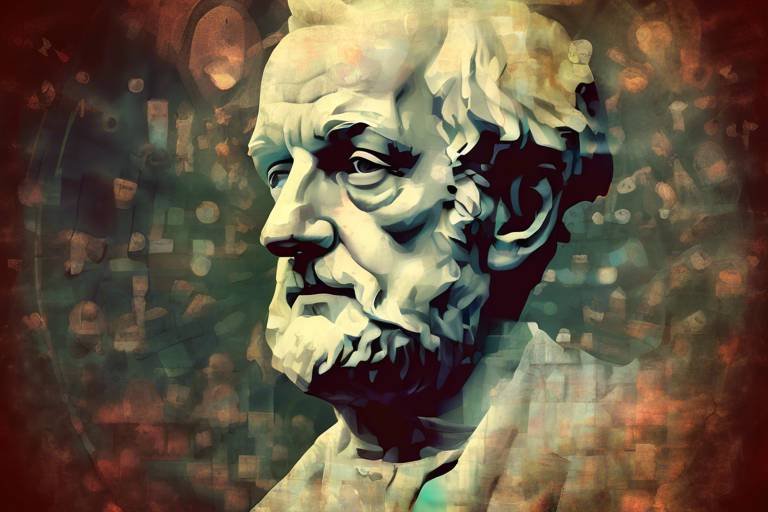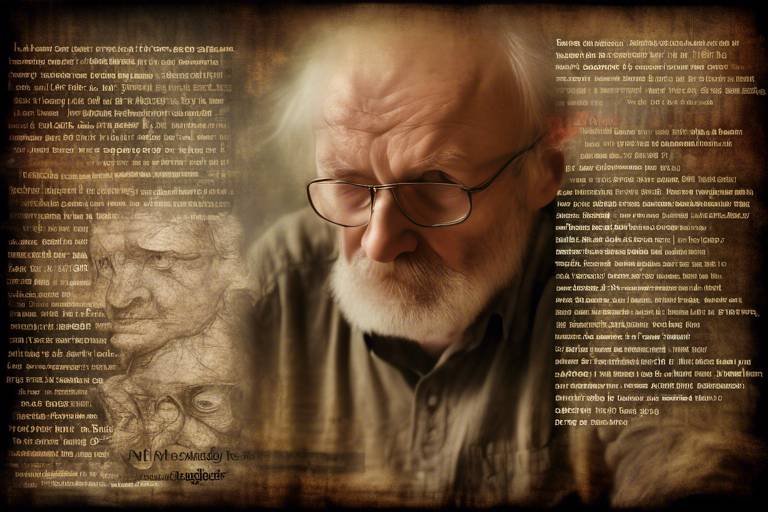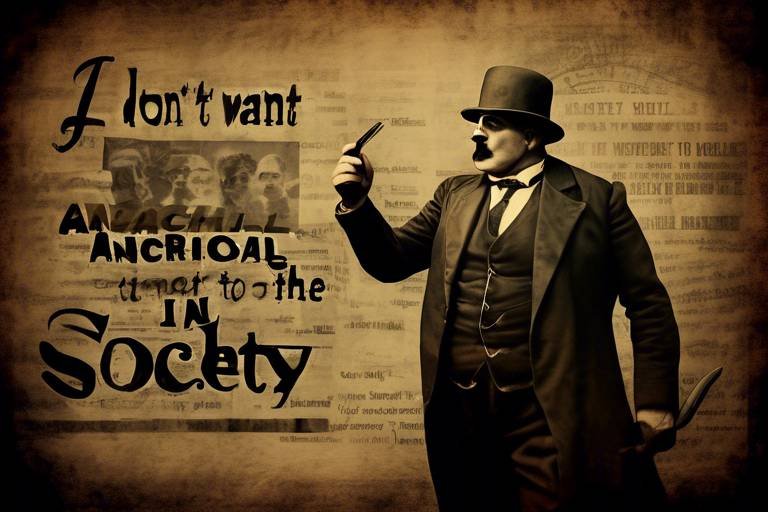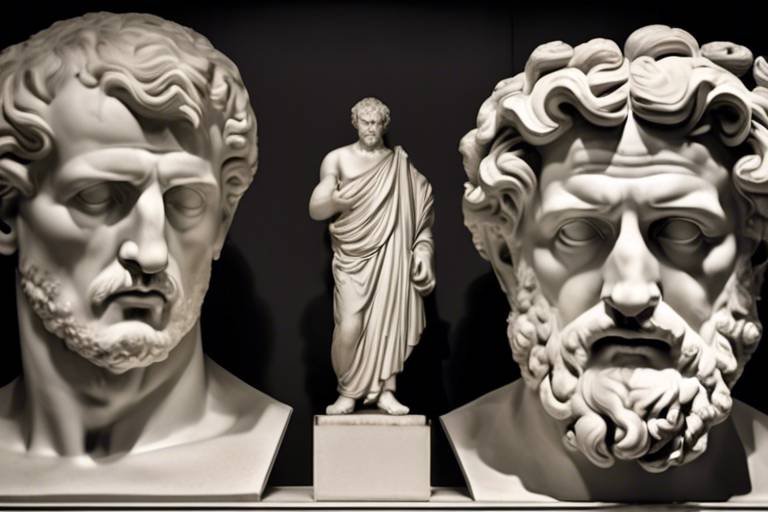Philosophy vs Theology: A Comparative Exploration
When we think about the big questions of life—like, "Why are we here?" or "What is the nature of good and evil?"—two fields often come to mind: philosophy and theology. While both disciplines delve into profound inquiries about existence, morality, and the divine, they do so through different lenses, methodologies, and assumptions. Philosophy, with its roots in critical thinking and rational inquiry, encourages us to question everything, often leading to more questions than answers. On the other hand, theology approaches these questions from a faith-based perspective, rooted in religious traditions and sacred texts. This article will explore the distinctions and intersections of these two fields, illuminating how they shape our understanding of life and the universe.
At its core, philosophy is the study of fundamental questions regarding existence, knowledge, values, reason, and language. Think of it as a never-ending quest for understanding, where every answer spawns new questions. Philosophers employ critical thinking and analytical methods to dissect abstract concepts, encouraging a questioning attitude toward life and reality. They often grapple with ideas that challenge our perceptions and beliefs, prompting us to rethink what we know about ourselves and the world around us. This discipline is not just about theorizing; it’s about engaging with life’s complexities and embracing the uncertainty that comes with it.
In contrast, theology is the study of the divine, exploring religious beliefs, practices, and experiences. It’s a field that seeks to interpret sacred texts and understand the nature of God, faith, and spirituality within specific religious contexts. Imagine theology as a bridge that connects believers to their faith, providing a framework through which they can understand their relationship with the divine. Theologians often analyze the interplay between faith, reason, and revelation, striving to articulate the essence of spiritual truths that guide individuals and communities alike.
The roots of philosophy can be traced back to ancient civilizations, where thinkers like Socrates, Plato, and Aristotle laid the groundwork for Western philosophical thought. These early philosophers posed questions that still resonate today, shaping how we approach questions of existence and morality. Their dialogues and writings encouraged critical examination of beliefs, influencing generations of thinkers and scholars. The evolution of philosophical thought has led to a rich tapestry of ideas, each contributing to our understanding of the human experience.
Throughout history, various philosophical movements, such as Rationalism, Empiricism, and Existentialism, have emerged, each offering unique perspectives on knowledge, reality, and human experience. These movements have not only influenced contemporary thought but also ethics, shaping the moral frameworks that guide our decisions today. For instance, Rationalism emphasizes reason as the primary source of knowledge, while Empiricism champions sensory experience. Existentialism, on the other hand, focuses on individual existence and the inherent meaninglessness of life, challenging us to create our own purpose.
Eastern philosophies, including Buddhism and Confucianism, provide alternative viewpoints on existence and morality, emphasizing harmony, balance, and the interconnectedness of all beings. These philosophies enrich the global philosophical discourse by offering insights that differ from Western thought, inviting us to consider the broader implications of our actions and beliefs. The teachings of these traditions often highlight the importance of compassion, mindfulness, and ethical living, encouraging a holistic approach to understanding life.
Faith is central to theology, serving as the foundation for understanding divine truths and religious doctrines. Theologians often explore how faith interacts with reason and revelation, seeking to articulate a coherent understanding of the divine. This exploration can lead to profound insights about the nature of existence and the moral imperatives that arise from religious teachings. In many ways, theology invites individuals to embark on a spiritual journey, encouraging them to grapple with their beliefs and the larger questions of life.
Philosophy often critiques and analyzes religious beliefs, questioning their validity and exploring concepts like the existence of God, the problem of evil, and the nature of faith. This rational framework provides a means of understanding spirituality that complements theological perspectives. By examining these concepts critically, philosophers challenge us to think deeply about our beliefs and the implications they have for our lives. This dialogue between philosophy and theology can lead to a richer understanding of both fields, revealing the complexities of faith and reason.
Philosophy offers diverse ethical frameworks, such as Utilitarianism and Deontology, to evaluate moral dilemmas. These frameworks guide individuals in making decisions that align with their values and societal norms. For instance, Utilitarianism advocates for actions that maximize overall happiness, while Deontology emphasizes the importance of rules and duties. By engaging with these ethical theories, individuals can navigate the often murky waters of moral decision-making, fostering a deeper understanding of what it means to live a good life.
Theology also addresses ethical questions, often grounded in divine commandments and religious teachings. It seeks to understand how faith informs moral behavior and the implications of religious ethics in contemporary society. By examining the ethical dimensions of faith, theologians can offer insights that resonate with believers, guiding them in their daily lives. This interplay between theology and ethics underscores the importance of aligning one's actions with their beliefs, fostering a sense of integrity and purpose.
- What is the main difference between philosophy and theology? Philosophy relies on critical thinking and reason, while theology is based on faith and religious beliefs.
- Can philosophy and theology coexist? Yes, many people find value in both disciplines, using philosophical inquiry to deepen their theological understanding.
- How do philosophical ethics differ from theological ethics? Philosophical ethics often focus on human reasoning and societal norms, whereas theological ethics are grounded in divine commandments and religious teachings.
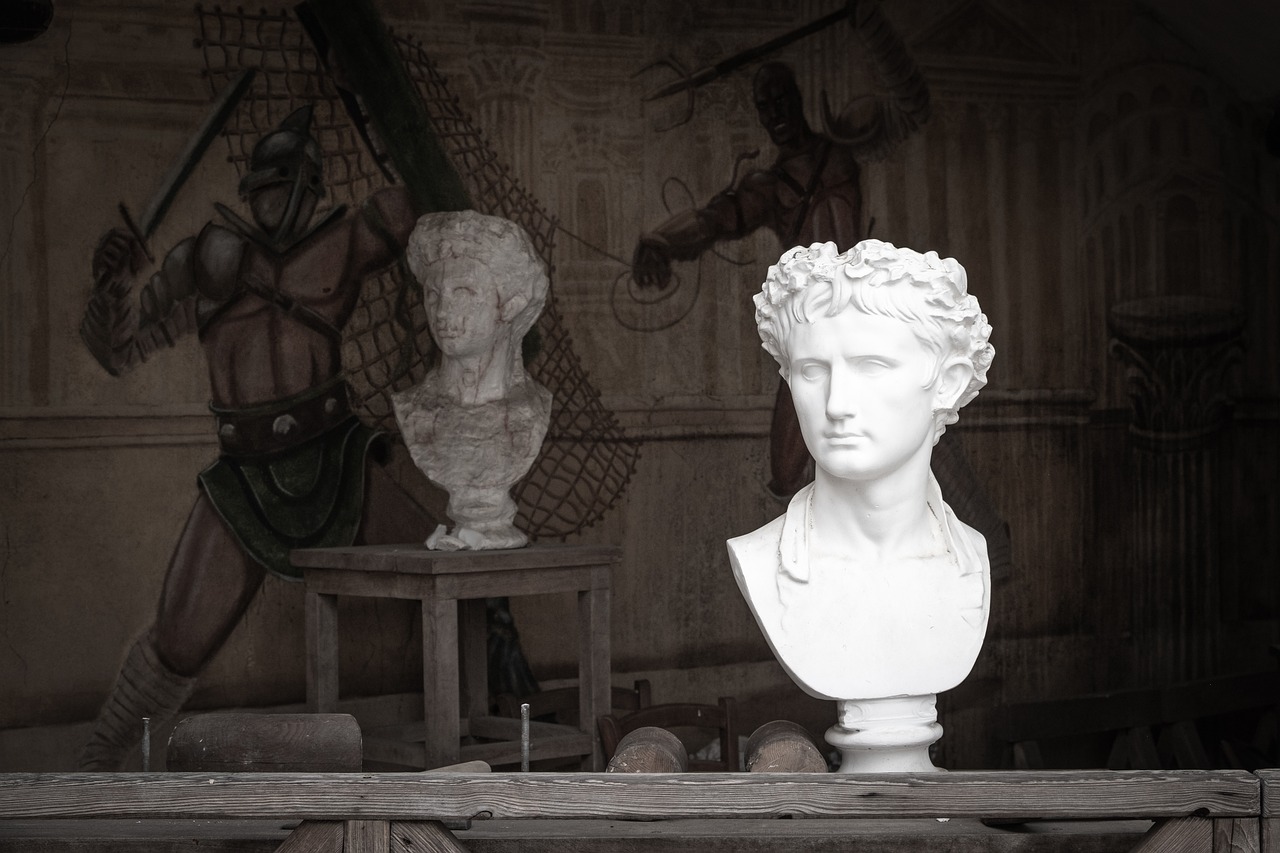
Defining Philosophy
Philosophy is an intriguing field that dives into the very essence of our existence. It's like taking a magnifying glass to the world around us, examining the fundamental questions that shape our understanding of reality. What does it mean to exist? How do we know what we know? What are the values that guide our lives? These are just a few of the questions that philosophers grapple with.
At its core, philosophy employs critical thinking and analytical methods to dissect abstract concepts. Think of it as a mental workout that challenges our brains to push beyond surface-level understanding. It encourages a questioning attitude toward life, prompting us to explore not just the "what" but the "why" behind our beliefs and actions. The philosopher's journey is not just about finding answers; it's about the pursuit of knowledge itself, often leading to more questions.
One of the fascinating aspects of philosophy is its ability to intersect with various disciplines. For instance, when we consider ethics, philosophy doesn’t just stop at what is right or wrong; it delves into the reasoning behind our moral choices. This exploration can be broken down into several key areas:
- Metaphysics: The study of the nature of reality, exploring concepts like being, existence, and the universe.
- Epistemology: The investigation of knowledge and belief, questioning how we know what we know.
- Ethics: The examination of moral values and principles, guiding our decisions and actions.
- Logic: The framework of reasoning, helping us to construct valid arguments and identify fallacies.
Philosophers often engage in dialogues that challenge the status quo, much like a lively debate among friends at a café. They pose questions that might seem trivial but are foundational to our understanding of life. For example, consider the question, "What is the good life?" This simple inquiry opens a floodgate of discussions about happiness, fulfillment, and personal values. In this way, philosophy acts as a mirror reflecting our beliefs, prompting us to examine whether they stand up to scrutiny.
Moreover, philosophy isn’t just an academic exercise; it has practical implications that influence our daily lives. From the decisions we make to the societal norms we uphold, philosophical inquiry shapes our perspectives on everything from politics to personal relationships. By engaging with philosophical thought, we become more aware of our own biases and assumptions, ultimately leading to a more enlightened approach to life.
In conclusion, defining philosophy is like trying to catch smoke with your bare hands—it's elusive yet profoundly impactful. It invites us to question, to explore, and to understand the world and ourselves in deeper ways. By fostering a curious mindset, philosophy enriches our lives, making us not just passive recipients of knowledge but active participants in the quest for understanding.

Defining Theology
Theology, at its core, is the study of the **divine** and the exploration of **religious beliefs**, practices, and experiences. It delves into the nature of God, the essence of faith, and the spiritual dimensions that shape human existence. While it is often perceived as a strictly religious pursuit, theology is a rich field that invites questions and fosters dialogues about the ultimate meaning of life and our place in the cosmos.
One might wonder, what makes theology distinct from other fields of study? Unlike philosophy, which primarily uses reason and critical thinking to explore existence and morality, theology often relies on **sacred texts** and **traditions** as its foundational sources. This means that theologians interpret religious scriptures, such as the Bible, the Quran, or the Bhagavad Gita, to understand and articulate the nature of the divine. In this way, theology can be seen as both a personal journey of faith and an academic discipline that seeks to make sense of the complexities of spirituality.
Moreover, theology is not monolithic; it varies significantly across different cultures and religions. For instance, the **Christian theology** emphasizes the relationship between God and humanity through the lens of Jesus Christ, while **Islamic theology** focuses on the teachings of the Quran and the prophethood of Muhammad. Similarly, **Hindu theology** explores a multitude of deities and philosophical concepts like dharma and karma. This diversity enriches theological discourse and provides a broader understanding of how different cultures interpret the divine.
Central to theology is the concept of **faith**, which serves as a foundation for understanding divine truths and religious doctrines. Theologians often analyze how faith interacts with reason and revelation. This interplay raises intriguing questions: Can faith exist independently of reason? How do individuals reconcile their beliefs with scientific understanding? These inquiries not only deepen our comprehension of theology but also highlight its relevance in contemporary society.
| Key Aspects of Theology | Description |
|---|---|
| Divine Nature | Exploration of the characteristics and existence of God or gods. |
| Sacred Texts | Interpretation of religious scriptures as foundational sources of truth. |
| Faith | Examination of belief systems and their impact on human behavior. |
| Religious Practices | Study of rituals, worship, and community life within different faiths. |
In summary, theology is a multifaceted discipline that invites us to ponder the profound questions of existence, morality, and the divine. It encourages a deep exploration of faith, urging individuals to reflect on their beliefs and the implications these beliefs have on their lives and society as a whole. Whether one approaches theology from a religious standpoint or a philosophical lens, it remains an essential field that seeks to illuminate the mysteries of existence.
- What is the difference between theology and philosophy? Theology focuses on the divine and religious beliefs, while philosophy emphasizes critical thinking and reasoning about existence and morality.
- Can theology be studied objectively? While theology often involves personal beliefs, many academic institutions approach it as a scholarly discipline, analyzing texts and traditions critically.
- How does theology influence ethics? Theology provides a framework for understanding moral behavior based on religious teachings and divine commandments.
- Is theology relevant in contemporary society? Yes, theology addresses fundamental questions about existence and morality, making it relevant for discussions on ethics, spirituality, and community life.
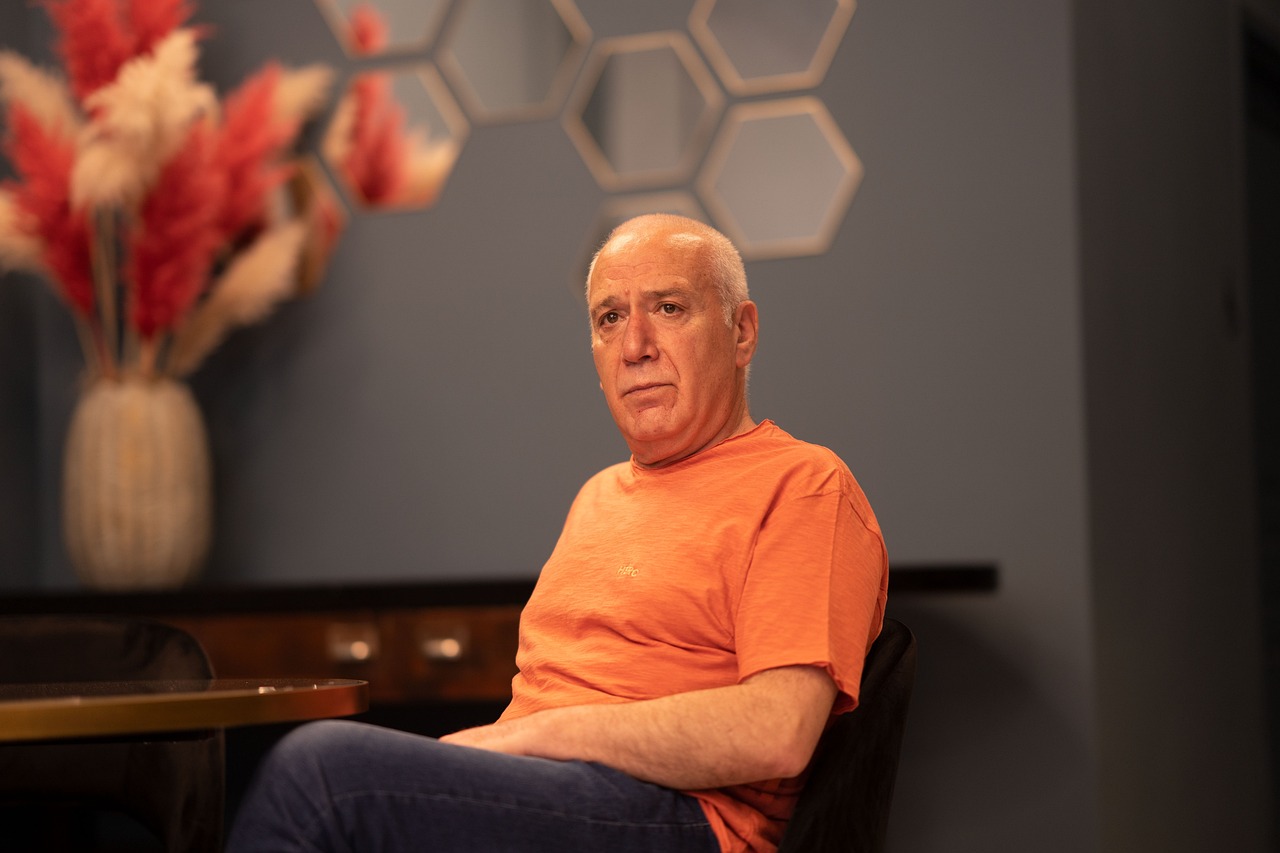
Historical Context of Philosophy
The historical context of philosophy is a fascinating tapestry woven from the thoughts and ideas of ancient civilizations. The journey begins in ancient Greece, where the likes of Socrates, Plato, and Aristotle laid the foundational stones of Western philosophy. Socrates, often regarded as the father of Western philosophy, introduced the method of questioning—encouraging individuals to examine their beliefs and the world around them. His famous dictum, "The unexamined life is not worth living," resonates even today, urging us to engage in critical self-reflection.
Plato, a student of Socrates, took these ideas further by establishing the Academy, one of the earliest institutions of higher learning in the Western world. His dialogues explored themes of justice, beauty, and equality, while introducing the concept of ideal forms—abstract representations of reality that transcend the physical world. Aristotle, Plato’s student, contributed significantly to various fields, including ethics, metaphysics, and logic, shaping the way we think about existence and morality.
As we move through history, we encounter various philosophical movements that emerged in response to the changing social and political landscapes. The Rationalism of the 17th century, championed by thinkers like Descartes, emphasized reason as the primary source of knowledge. In contrast, the Empiricism of philosophers like Locke and Bacon argued that knowledge comes from sensory experience, highlighting the importance of observation and experimentation.
Later, the existentialists, including Sartre and Kierkegaard, turned the focus inward, exploring the individual’s experience and the search for meaning in a seemingly indifferent universe. They raised profound questions about existence, freedom, and the human condition, challenging people to confront their own lives and choices.
Moreover, the influence of Eastern philosophy cannot be overlooked. Traditions such as Buddhism and Confucianism introduced contrasting perspectives on existence and morality. For instance, Buddhism emphasizes the concept of impermanence and the interconnectedness of all beings, encouraging a path toward enlightenment through mindfulness and compassion. In contrast, Confucianism focuses on social harmony and ethical relationships, advocating for a well-ordered society based on respect and moral integrity.
In summary, the historical context of philosophy is rich and diverse, shaped by a myriad of thinkers and movements that have influenced how we approach fundamental questions about existence, morality, and the human experience. As we continue to explore these ideas, we find that philosophy remains a dynamic field, inviting us to engage with the profound questions of life.
- What is the main difference between philosophy and theology? Philosophy seeks to understand fundamental questions about existence and knowledge through reason and critical thinking, while theology focuses on the study of the divine and religious beliefs.
- Who are some key figures in the history of philosophy? Important philosophers include Socrates, Plato, Aristotle, Descartes, and Kant, among others.
- How does Eastern philosophy differ from Western philosophy? Eastern philosophies often emphasize harmony and interconnectedness, while Western philosophies may focus more on individualism and rationality.
- Can philosophy and theology coexist? Yes, many individuals find value in both fields, using philosophical reasoning to explore theological concepts and vice versa.

Key Philosophical Movements
Throughout the rich tapestry of human thought, various philosophical movements have emerged, each serving as a lens through which we can examine the complexities of existence, knowledge, and morality. These movements are not merely academic exercises; they are profound reflections of the human condition and our quest for understanding. Let's explore some of the most influential movements that have shaped philosophical discourse.
One of the earliest and most significant movements is Rationalism, which asserts that reason is the primary source of knowledge. Thinkers like René Descartes championed this view, famously declaring, "I think, therefore I am." Rationalism emphasizes the role of intellectual deduction over sensory experience, suggesting that certain truths can be known through reason alone. In contrast, we have Empiricism, which argues that knowledge comes from sensory experience. Philosophers such as John Locke and David Hume contended that our understanding of the world is shaped by our interactions with it. This clash between rationalism and empiricism has sparked countless debates, leading to a more nuanced understanding of how we acquire knowledge.
Another pivotal movement is Existentialism, which emerged in the 20th century and focuses on individual freedom, choice, and the inherent meaninglessness of life. Existentialists like Jean-Paul Sartre and Simone de Beauvoir emphasized the importance of personal responsibility and the subjective experience of existence. They challenged individuals to create their own meaning in a world that often seems indifferent to human struggles. This movement resonates deeply in contemporary society, where many grapple with questions of identity and purpose.
Additionally, we cannot overlook the contributions of Stoicism, an ancient school of thought that teaches the development of self-control and fortitude as a means to overcome destructive emotions. Stoics like Epictetus and Marcus Aurelius advocated for a life in accordance with nature and reason, emphasizing the importance of virtue and wisdom. Their teachings have seen a resurgence in modern times, particularly in the realm of self-help and personal development.
To provide a clearer view of these movements, let’s summarize their key characteristics in the following table:
| Philosophical Movement | Key Thinkers | Core Ideas |
|---|---|---|
| Rationalism | René Descartes, Baruch Spinoza | Knowledge through reason; innate ideas |
| Empiricism | John Locke, David Hume | Knowledge through sensory experience |
| Existentialism | Jean-Paul Sartre, Simone de Beauvoir | Individual freedom and responsibility; meaning creation |
| Stoicism | Epictetus, Marcus Aurelius | Self-control, virtue, and living in accordance with nature |
These movements not only provide frameworks for understanding existence and morality but also challenge us to reflect on our own beliefs and values. They invite us to engage in critical thinking and to question the status quo, ultimately enriching our philosophical journey.
- What is the main difference between philosophy and theology?
Philosophy seeks to understand fundamental questions through reason and critical analysis, while theology focuses on understanding the divine and religious beliefs. - How do philosophical movements influence modern thought?
Philosophical movements provide frameworks that shape contemporary discussions on ethics, existence, and knowledge, influencing various fields such as psychology, politics, and education. - Can philosophy and theology coexist?
Yes, many individuals find value in both philosophical inquiry and theological beliefs, using each to inform and enrich their understanding of life and existence.

Influence of Eastern Philosophy
When we dive into the realm of Eastern philosophy, we uncover a treasure trove of ideas that challenge our conventional understanding of existence and morality. Unlike the often linear and analytical approach seen in Western thought, Eastern philosophies like Buddhism and Confucianism invite us to explore the intricate web of life, emphasizing balance and interconnectedness. Imagine life as a vast tapestry, where each thread represents an individual, and the patterns they create reflect the harmony of existence. This perspective encourages a holistic view, urging us to consider how our actions resonate within the larger cosmos.
One of the most compelling aspects of Eastern philosophy is its focus on inner peace and the quest for enlightenment. For instance, Buddhism teaches that suffering is an inherent part of life, and it’s our attachment to desires that leads to discontent. The Four Noble Truths serve as a guiding framework, offering a path toward liberation through practices like meditation and mindfulness. This isn’t just a set of beliefs; it’s a practical guide to navigating the complexities of human experience. Think of it as a roadmap that helps us find our way through the chaos of modern life.
Confucianism, on the other hand, emphasizes the importance of relationships and social harmony. Its teachings advocate for virtues such as filial piety, respect for elders, and the value of community. In a world that often prioritizes individualism, Confucian thought reminds us that our actions have consequences that ripple through our families and societies. It’s like being part of a grand orchestra, where each musician must harmonize with others to create beautiful music. This philosophy not only enriches personal relationships but also lays the groundwork for a cohesive society.
Moreover, Eastern philosophies often encourage a sense of non-duality, challenging the binary thinking prevalent in Western discourse. This concept suggests that opposites—like good and evil, or self and other—are not mutually exclusive but rather interconnected. By embracing this perspective, we can cultivate a deeper understanding of our place in the universe. It’s akin to viewing life through a kaleidoscope, where shifting the lens reveals new patterns and connections that were previously unseen.
Incorporating these Eastern philosophies into our daily lives can lead to profound transformations. Whether through meditation practices that enhance our mindfulness or ethical frameworks that prioritize community well-being, the influence of Eastern thought is undeniably enriching. It invites us to slow down, reflect, and appreciate the intricate dance of existence, ultimately guiding us toward a more harmonious life.

The Role of Faith in Theology
Faith is not just a simple belief; it's a profound and multifaceted concept that serves as the backbone of theology. In essence, faith is the lens through which theologians interpret the divine and engage with the complexities of religious life. It provides a framework for understanding sacred texts, rituals, and the nature of God, while simultaneously inviting individuals into a deeper relationship with the divine. But what does it mean to have faith? Is it merely an acceptance of doctrines, or is it something more? Let's explore this intriguing question.
At its core, faith can be seen as a trusting relationship between the believer and the divine. This relationship is not static; it evolves and deepens over time, influenced by personal experiences, community interactions, and theological study. Theologians often emphasize that faith is not blind; rather, it is informed by reason and revelation. This interplay between faith and reason is crucial, as it allows believers to navigate the complexities of their beliefs while maintaining a rational grounding in their spiritual journey.
Moreover, faith in theology is often articulated through several key dimensions:
- Intellectual Dimension: This involves understanding and interpreting religious texts and doctrines. Theologians engage in critical analysis, drawing from historical, cultural, and linguistic contexts to derive meaning.
- Experiential Dimension: Faith is also shaped by personal experiences of the divine, whether through prayer, worship, or community engagement. These experiences can affirm or challenge existing beliefs, leading to a richer understanding of faith.
- Communal Dimension: Faith is rarely a solitary endeavor. It flourishes within communities, where shared beliefs, practices, and traditions foster a sense of belonging and support.
This multifaceted nature of faith underscores its significance in theology. It allows believers to grapple with profound questions about existence, morality, and the divine. Theologians often explore how faith informs ethical decisions and influences social justice issues, illustrating that faith is not just a personal matter but a communal one that has real-world implications.
In contemporary society, the role of faith in theology is more relevant than ever. As individuals face crises of belief, moral dilemmas, and existential questions, faith can provide a sense of purpose and direction. Theologians argue that faith can be a guiding light, helping individuals navigate the tumultuous waters of life while fostering hope and resilience.
In summary, faith is a dynamic and essential component of theology that shapes how individuals understand the divine and engage with their beliefs. It intertwines with reason, experience, and community, creating a rich tapestry of understanding that informs not only personal spirituality but also broader societal values. As we continue to explore the intersections of faith and theology, we uncover insights that resonate deeply within our quest for meaning and connection in an ever-changing world.
- What is the difference between faith and belief? Faith often implies a deeper, more relational trust in the divine, while belief can be more about accepting certain propositions or doctrines.
- How does faith influence ethical decision-making? Faith can provide a moral framework that guides individuals in making decisions that align with their spiritual values and community teachings.
- Can faith exist without religion? Yes, some individuals may experience faith in a broader sense, finding spirituality and meaning outside traditional religious structures.
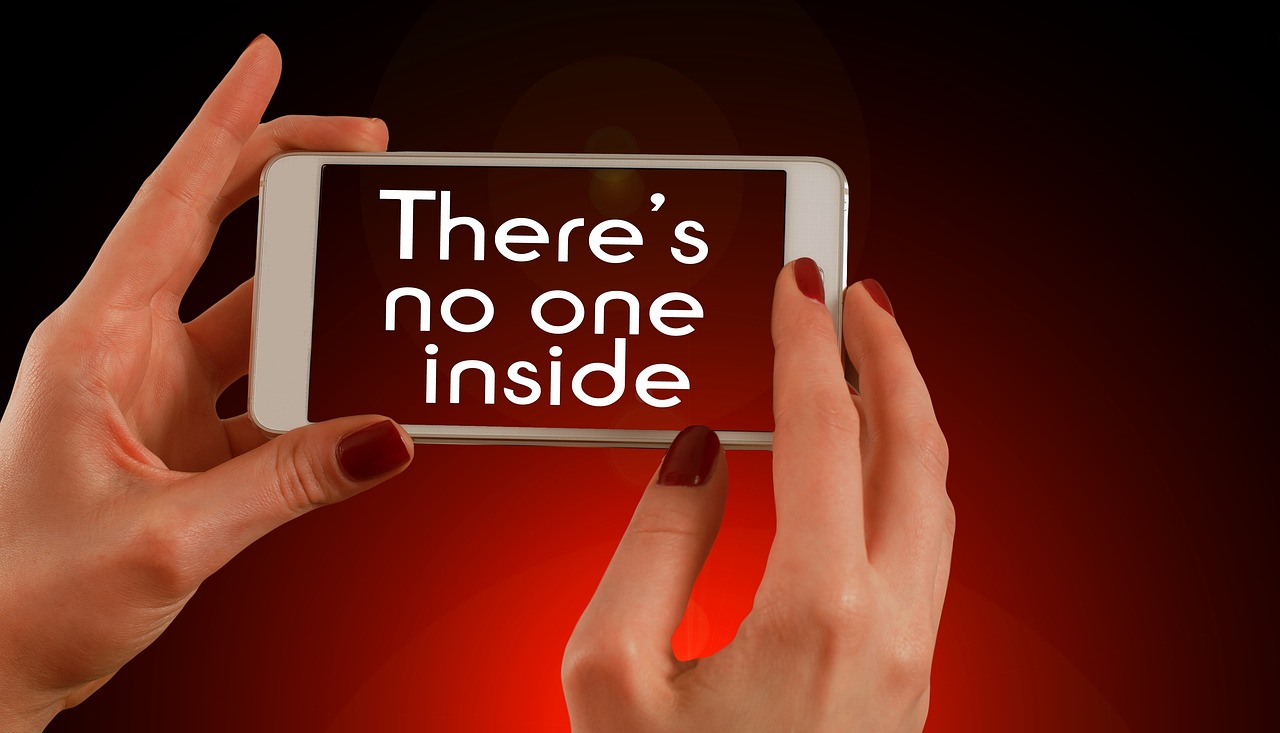
Philosophical Approaches to Religion
Philosophy and religion have danced together for centuries, each influencing the other in profound ways. At its core, philosophy seeks to understand the world through reason and critical inquiry, while religion often relies on faith and divine revelation. This intersection opens a rich dialogue where philosophical approaches to religion can challenge, support, or even redefine spiritual beliefs. Philosophers often grapple with questions such as: Does God exist? What is the nature of faith? And how do we reconcile the presence of evil in a world governed by a benevolent deity?
One of the most compelling aspects of philosophical inquiry into religion is the examination of arguments for and against the existence of God. Classical arguments such as the Cosmological Argument, which posits that everything that exists has a cause, lead to the conclusion that there must be an uncaused cause, often identified as God. Conversely, the Problem of Evil challenges the notion of an all-powerful, all-good deity by questioning why suffering exists in the world. These philosophical debates not only sharpen our understanding of the divine but also encourage believers to examine their faith critically.
Philosophers also explore the concept of faith itself. Faith can be viewed as a leap into the unknown, a trust in the divine that transcends empirical evidence. Thinkers like Søren Kierkegaard emphasized the importance of subjective experience in understanding faith, suggesting that true belief often requires a personal commitment that defies rational explanation. This perspective invites individuals to consider their own experiences and the role of personal conviction in their spiritual journeys.
Moreover, the relationship between ethics and religion is a fertile ground for philosophical exploration. Philosophers analyze how religious beliefs shape moral frameworks, often contrasting divine command theory—which asserts that morality is grounded in God's will—with secular ethical theories like Utilitarianism and Deontology. This comparison raises important questions: Are moral values absolute because they come from a divine source, or are they shaped by cultural and social contexts? Such inquiries not only deepen our understanding of ethics but also challenge us to consider how our beliefs inform our actions in the world.
In addition to these debates, the philosophical approach to religion often involves examining the language of faith. Philosophers like Ludwig Wittgenstein have argued that religious language is a unique form of expression that conveys meaning beyond literal interpretation. This perspective suggests that understanding religious texts and doctrines requires an appreciation for the symbolic and metaphorical dimensions of language, prompting believers to engage with their faith in more nuanced ways.
As we navigate these complex philosophical landscapes, it's essential to recognize that the dialogue between philosophy and religion is not merely academic; it has real-world implications. The philosophical inquiry into religious beliefs can lead to greater tolerance, understanding, and ultimately, a more profound appreciation for the diverse ways in which humanity seeks meaning and connection with the divine.
- What is the main difference between philosophy and theology? Philosophy uses reason and critical thinking to explore fundamental questions, while theology focuses on understanding religious beliefs and the divine through faith.
- Can philosophy prove the existence of God? Various philosophical arguments attempt to demonstrate God's existence, but these remain subjects of intense debate and discussion.
- How does faith influence ethical decision-making? Faith can provide a moral framework for individuals, guiding their decisions based on religious teachings and beliefs.

Ethics in Philosophy
When we dive into the realm of , we're embarking on a journey that challenges our perceptions of right and wrong. Philosophy isn't just about pondering abstract ideas; it's about grappling with the moral dilemmas that define our existence. Think of ethics as the compass that guides our actions and decisions, helping us navigate the complex landscape of human behavior. Philosophers have long sought to understand what it means to live a good life, and their inquiries have led to various frameworks that help us evaluate our choices.
One of the most prominent ethical theories is Utilitarianism, which suggests that the morality of an action is determined by its outcomes. In simple terms, it advocates for actions that maximize happiness and minimize suffering. Imagine standing at a crossroads where one path leads to greater happiness for many but less for a few. Utilitarianism encourages us to choose the route that benefits the majority, sparking debates about the value of individual rights versus collective well-being.
On the other hand, we have Deontology, a theory championed by philosophers like Immanuel Kant. This approach emphasizes the importance of duty and rules over the consequences of actions. Deontologists argue that some actions are inherently right or wrong, regardless of their outcomes. For instance, telling the truth is considered a moral duty, even if it may lead to negative consequences. This idea can feel a bit like a strict parent setting rules—there's a clear right and wrong, and bending those rules can lead to chaos.
In addition to these frameworks, philosophy also encourages us to explore questions about moral relativism. This perspective posits that moral values are not universal but rather shaped by cultural, societal, and personal contexts. What may be considered ethical in one culture could be seen as immoral in another. This raises intriguing questions: Is there a universal moral truth, or are our ethical beliefs merely products of our environment? The exploration of these questions can be both enlightening and perplexing, leaving us with more questions than answers.
Furthermore, philosophers often engage with the concept of virtue ethics, which focuses on the character of the moral agent rather than specific actions. This approach, rooted in the works of Aristotle, emphasizes the importance of developing good character traits—like courage, honesty, and compassion. Imagine ethics as a garden; virtue ethics encourages us to cultivate the right qualities within ourselves to ensure that the fruits of our actions are good and beneficial.
As we navigate these various ethical frameworks, it's essential to recognize that philosophy does not provide definitive answers but rather encourages us to ask questions, reflect on our beliefs, and engage in meaningful discussions. The beauty of studying ethics in philosophy lies in its ability to challenge us, prompting us to consider the implications of our choices and the values we hold dear. In a world filled with gray areas, philosophy offers us the tools to think critically about our moral landscape.
- What is the difference between ethics and morality? Ethics refers to the systematic study of what is right and wrong, while morality encompasses the actual beliefs and practices regarding right and wrong.
- Can ethical theories be applied to real-life situations? Yes! Ethical theories provide frameworks that can help individuals navigate complex moral dilemmas in their daily lives.
- Is there a universal ethical standard? This is a debated topic. Some argue for universal ethics, while others believe that moral standards are culturally relative.
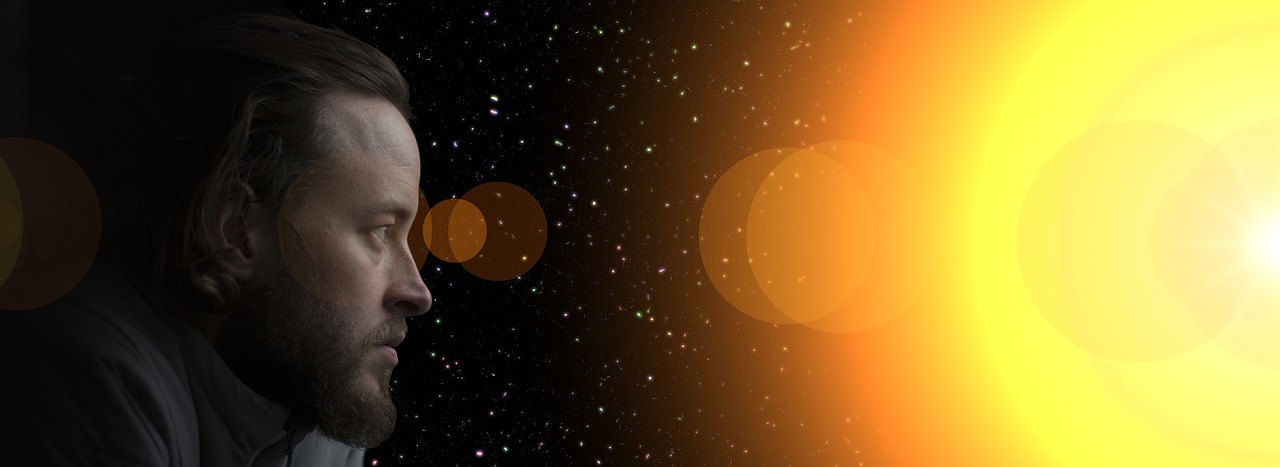
Ethics in Theology
Ethics in theology is a fascinating and complex subject that dives deep into the moral principles and values derived from religious teachings. At its core, theology seeks to understand how faith influences our understanding of right and wrong, shaping our moral compass in profound ways. Imagine for a moment that ethics is like a roadmap guiding us through the intricate landscape of life; theology provides the signposts that help us navigate this journey. It’s not just about following rules but understanding the divine intentions behind them.
In many religious traditions, ethical teachings are often rooted in sacred texts and divine commandments. For example, in Christianity, the Ten Commandments serve as a foundational ethical framework, while in Islam, the teachings of the Quran provide guidance on moral conduct. These texts are more than mere guidelines; they are viewed as revelations that offer insights into the nature of good and evil, shaping the moral landscape of their followers.
Moreover, the ethical implications of theology extend beyond individual behavior to encompass broader societal issues. Theologians often grapple with questions such as:
- How do religious beliefs influence contemporary moral dilemmas?
- What role does faith play in social justice movements?
- How can religious ethics address issues like poverty, war, and environmental degradation?
This exploration of ethics within theology is not merely academic; it has real-world implications. For instance, many religious groups actively engage in advocacy based on their ethical beliefs, striving to create a more just and compassionate society. This intersection of faith and ethics can be seen in various movements, such as the Civil Rights Movement in the United States, where leaders like Martin Luther King Jr. drew heavily on theological principles to advocate for equality and justice.
However, it’s essential to recognize that ethical interpretations can vary significantly across different religious traditions. What one faith considers morally acceptable may be viewed differently by another. This diversity can lead to rich discussions and debates, fostering a deeper understanding of morality and ethics across cultures. For example, while some religions emphasize individual autonomy in moral decision-making, others may stress communal values and collective responsibility.
In conclusion, ethics in theology serves as a bridge connecting faith with moral action. It challenges individuals to reflect on their beliefs and how these beliefs manifest in their daily lives. By examining the ethical teachings of various religious traditions, we can gain valuable insights into the human experience and our shared quest for meaning and purpose. Ultimately, theology not only informs our ethical decisions but also invites us to engage with the world around us in a more profound and meaningful way.
- What is the role of ethics in theology? Ethics in theology helps individuals understand how their faith influences their moral decisions and actions.
- How do different religions approach ethics? Different religions may have unique ethical frameworks based on their sacred texts and teachings, leading to diverse interpretations of morality.
- Can theology and philosophy coexist in ethical discussions? Absolutely! Theology and philosophy can complement each other, providing a richer understanding of ethical dilemmas and moral principles.
Frequently Asked Questions
- What is the main difference between philosophy and theology?
Philosophy is primarily concerned with fundamental questions about existence, knowledge, and ethics through critical thinking and reason. In contrast, theology focuses on the divine, exploring religious beliefs and practices, often rooted in faith and sacred texts.
- Can philosophy and theology coexist?
Absolutely! Many people find that philosophy can complement their theological beliefs by providing a rational framework to explore and understand their faith. The two fields can engage in a meaningful dialogue, enriching one's understanding of existence and morality.
- How does historical context influence philosophy?
The historical context shapes philosophical thought significantly. Ancient thinkers like Socrates and Aristotle laid the groundwork for Western philosophy, and their ideas continue to influence contemporary discussions on ethics and existence. Each philosophical movement emerges in response to the social and cultural issues of its time.
- What role does faith play in theology?
Faith is central to theology as it serves as the foundation for understanding divine truths and religious doctrines. Theologians explore how faith interacts with reason and revelation, helping believers navigate their spiritual journeys within their religious traditions.
- How does philosophy approach religious beliefs?
Philosophy often critiques and analyzes religious beliefs, questioning their validity and exploring concepts like the existence of God and the problem of evil. This critical approach helps individuals understand spirituality from a rational standpoint, allowing for deeper insights into their beliefs.
- What are some ethical frameworks in philosophy?
Philosophy presents various ethical frameworks, such as Utilitarianism, which focuses on the greatest good for the greatest number, and Deontology, which emphasizes duties and rules. These frameworks guide individuals in making moral decisions aligned with their values.
- How does theology address ethical questions?
Theology tackles ethical questions by grounding them in divine commandments and religious teachings. It seeks to understand how faith influences moral behavior, providing insights into the implications of religious ethics in today's world.









